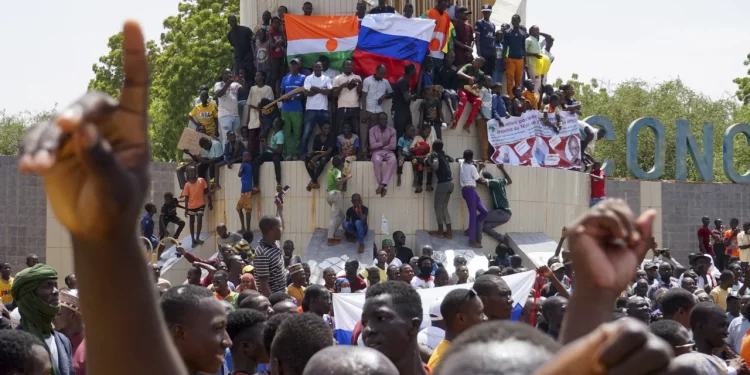Following last month’s coup in Niger, a high-ranking US official, Acting Deputy Secretary of State Victoria Nuland, has reportedly engaged in direct discussions with the country’s military leadership. Nuland described these conversations as “extremely frank and at times quite difficult.” In response to the coup, the US has suspended aid payments, emphasizing that a diplomatic resolution is still attainable, with the aim of reinstating President Mohamed Bazoum. This development comes as West African nations prepare to convene to address the crisis.
The Economic Community of West African States (Ecowas), a bloc of 15 West African countries, had set a deadline for Niger’s junta leaders to step down and restore the duly elected president by 23:00 GMT Sunday. In reaction to the bloc’s threat of military action, the coup leaders responded by shutting down Niger’s airspace.
Nuland conveyed that during talks lasting over two hours, the US extended assistance “if there is a desire on the part of the people who are responsible for this to return to the constitutional order.” However, she indicated that the offer was not taken up. She met with Brigadier General Moussa Salaou Barmou, the new military chief of staff, but did not meet General Abdourahamane Tchiani, the self-proclaimed leader, or President Bazoum.
Nuland raised concerns over reports that the coup leaders sought help from Russia’s Wagner mercenary group to maintain control. She underlined that involving Wagner could jeopardize Niger’s sovereignty.
Gen Tchiani, who took control on July 26, justified the coup as a measure to prevent Niger’s gradual decline. Meanwhile, the instability in the region prompted France to caution its citizens against traveling to the Sahel region and to exercise caution due to anti-France sentiment.
The junta in Niger stated that it had information regarding a potential foreign attack on the country. Ecowas has formulated a comprehensive plan for potential use of force. While the elements for intervention have been outlined, Ecowas emphasizes the importance of diplomatic solutions.
Nigeria’s Senate discussed the situation, particularly the Ecowas sanctions and potential military intervention. President Bola Tinubu demanded the Niger military relinquish power, but any foreign military action necessitates National Assembly approval.
Despite pressure, the coup leaders displayed no inclination to yield power, with their supporters defiantly rallying in the capital Niamey. Niger, a significant uranium producer vital for nuclear power, was a crucial Western ally against Islamist militants under President Bazoum.


